Champions of Change Blog
Building Support, Defending Rights, Pioneering Solutions for Children and Families
Posted by on June 18, 2013 at 12:45 PM EST Elizabeth Gaynes is being honored as a Champion of Change for her dedication to the well-being of children of incarcerated parents.
Elizabeth Gaynes is being honored as a Champion of Change for her dedication to the well-being of children of incarcerated parents.At the age of 22, my son moved from NYC to a rural Southern town where there was little more than an Army recruiting station, a Walmart, and a prison. He waited tables during the week and every Sunday visited his father in prison. After spending most of his life separated from his dad, my son felt he needed to get to know his father better. The fact is, all children have a right to know their parents. But the prison frenzy in this country has led to the largest separation of parents and children since slavery. Today, more than 10 million children in the U.S. have experienced the incarceration of a parent.
When my children's father went to prison in 1984, I believed that even while incarcerated he could provide them with the love and attention that are crucial to every child's development and future prospects. As executive director of the Osborne Association, a New York nonprofit I have led for nearly 30 years, I was able to establish FamilyWorks, the first comprehensive parenting program for fathers in a men's state prison. I believed that supporting men to become better fathers, even from prison, would benefit their children, reduce recidivism and strengthen the families and communities to which fathers would return. The research has proven us right.
My daughter Emani Davis began advocating on behalf of children of prisoners when she was 14, and demanded that we stop calling her and her peers children "at risk" and begin calling them children at promise. She showed us that children of prisoners benefited from their connection with other children who understood their experience. When Emani and I became the first Americans ever nominated for the World's Children's Prize for the Rights of the Child in Sweden, they told us they believed mass incarceration was the greatest threat to child wellbeing in the U.S.
Soon after, the Osborne Association launched the New York Initiative for Children of Incarcerated Parents, a partnership of more than 65 government, academic and community organizations advocating on behalf of policy and practice recommendations to improve the lives and outcomes of children with incarcerated parents. The growing consensus on these goals may signal a shift in the conversation from retribution to reconciliation, and a willingness to address the collateral damage of incarceration.
New York has led the nation in reducing crime and incarceration and has closed prisons. Unfortunately, the problems faced by children with incarcerated parents don't disappear the day their parents come home. Adjusting to life out of prison, finding stable housing and a job, affect a child's relationship with a formerly incarcerated parent. Fortunately one of the shuttered prisons, Fulton Correctional Facility in the Bronx, is being transferred to Osborne to develop into a groundbreaking full service reentry facility, because their successful reintegration into their families and communities benefits all of us.
I am proud to be part of a growing consensus on the importance of supporting families affected by crime and incarceration, and grateful that the White House has recognized our community of champions - including the Champions of Change and the millions of children and their parents and caregivers who live this reality every day.
Elizabeth Gaynes is the Executive Director of the Osborne Association.
Learn more about ServiceA Quarter of a Century: Multi Systemic Interventions for Children of Prisoners
Posted by on June 18, 2013 at 12:31 PM EST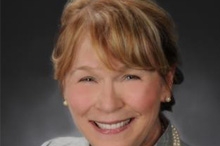 Dee Ann Newell is being honored as a Champion of Change for her dedication to the well-being of children of incarcerated parents.
Dee Ann Newell is being honored as a Champion of Change for her dedication to the well-being of children of incarcerated parents.My work for the past 25 years on behalf of the children of incarcerated parents I regard as first, an effort to gain human rights for our prisoners and their families. Further, it is a children’s rights issue, as these children bear the burden of the mass incarceration insanity in this nation. It is work that is deeply satisfying in the individual cases where interventions matter to the children and their families. However, the recognition of the needs and best interests of these children has been barely touched, with sporadic initiatives to support them and their families, while valuable, have not been sustained with steadfast funding or even public awareness. Their numbers swell, the research evidence multiplies, telling us of the many burdens these children bear, not only during their incarceration, but prior to their parent’s involvement in the criminal justice system, these children were accumulating a volume of risk factors exceeding those of other at-risk children and then the new cascade of risks that accompany the incarceration of a parent. The most obvious ones include the separation from their parent; they fall more deeply into poverty and the risks that are inherent to poverty alone. The roles of shame and stigma lead these children too often keeping their fears and concerns for their parent under wraps. The oft common silence of these children is deafening, and the invisible pain present mental health and even physical health risks for the children.
Further, these children are officially stigmatized by an erroneous statistic that is carelessly used by organizations that do not seek out the source of such a statistic that hails these children have a six times greater risk—I have even seen it posited as a 7 or 8 times greater risk of future incarceration. It is not a researched-based statistic and can lead policy makers into ignoring these “incubating criminals” and further devaluing these children who often feel isolated and unworthy. There are only a few times that we, in the sense of “we”, as represented by our government, determine the need to separate a child and a parent. One is appropriate and offers an array of services for the child and the parent, and that is our federal and state child welfare system. The other is when we sentence a parent to prison, but in this case, the children are virtually ignored, except in some locations. The judges and the attorneys do not consider the risk to the children of being separated by the punishment of incarceration used by our criminal justice system, viewing the convicted parent as a stand-alone matter—exceptions were seen in the Enron case several years ago when the judge staggered the parents’ sentences so the children would not be without a parent. But does that happen to a poor, African-American woman in my state’s Delta region, or anywhere else in my state? No. Indeed, judges often say they do not wish to have the children considered in their sentencing. Yet, The American Academy of Pediatrics views a parent-child separation as the most serious intervention by the state into the life of a child, and stipulates that it should be done as a last resort. But we do it every day, in courtroom after courtroom. For many families, a harsh sentence can be the death knell for their family, especially if the child is in foster care and the public child welfare system ifs forced by the timeline of the federal Adoption and Safe Families Act and parent inside is unable to utilize the exceptions to the ASFA timeframe. Some states have been successful in expanding the time frame, but it is not true in most states and the ongoing harshening of sentences, so politically useful, results in the dismantling of the family.
I have been blessed in my work in Arkansas to have so many partners and collaborators to work on behalf of the children. In 1994, a coalition of 32 organizations came together to bring public awareness to the needs of these children and their families, and in 2002, the coalition voted to become a 501©3 organization whose sole mission was to serve the children and their families. To this day, we consider our clients to be the families impacted by the criminal justice system, children, incarcerated parents, homecoming parents, and the custodial parents and kinship caregivers who step forward to care for the children. Each family member has needs that, when met, will serve the best interest of the children.
We have provided an array of services customized to the kinds of interventions we find effective in meeting our standard of safety, security, stability, connection to the parents, support for both the children and their caregivers, and the macro-practice of engaging the communities throughout our state in caring and valuing these families. We provide support groups for the caregivers in the deepest pockets of poverty in our state and in the areas with the highest rates of incarceration. We have community peer support groups for the children and youths, and school-based peer support and advocacy groups for youth in school-based services. We offer home visiting services for the grandparents and custodial parents of children from 0 through age 12 years. We teach parenting in our prisons and jails, and provide re-entry planning and family mentoring for the parent, caregiver and parent during pre-release and for one year following release and longer. Efforts have been made to offer a menu of interventions to serve mainly as healing processes and tools found efficacious, ranging from family and financial literacy, civil legal services, the arts with the children and with the caregivers, dialogue journaling, shaping your narrative, co-parenting agreements, visitation transportation, parenting and family mentoring, and services that the families tell us are needed, including health information, mental health counseling, family reunification services, support when the children are in foster care, and a Toll-Free Warm Line whereby our trained caregivers provide information to others about resources and referrals, along with troubleshooting individual problems with those outside of our reach. Numerous journal articles, a monthly newsletter, and publications of resource directories are available on our donated website, www.arkansasvoices.org
We regard our work as demanding a certain amount of public advocacy and we sponsor the Arkansas Anti-Shackling Coalition, the Arkansas Restorative Justice Coalition, the Arkansas Kinship Caregiver Network, the Arkansas Policy Initiative for Children of Prisoners, and the Family Re-entry Coalition.
Most importantly, the services are reviewed by our clients, including our youth, with innovations coming from the family members and their lenses insure that the services are relevant and significant to those we seek to support. A significant outcome is a 12% recidivism rate among1,026 respondents over a ten-year period, meaning fewer of the children having to cope with the loss of a parent on a repeated basis, a very positive outcome for the viability of the family, too.
Dee Ann Newell is the Executive Director of Arkansas Voices for the Children Left Behind.
Learn more about ServiceChanging Lives, Changing Systems: A Decade of Advocacy for Children of Incarcerated Parents
Posted by on June 18, 2013 at 12:18 PM EST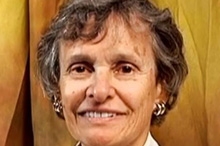 Claire Walker is being honored as a Champion of Change for her dedication to the well-being of children of incarcerated parents.
Claire Walker is being honored as a Champion of Change for her dedication to the well-being of children of incarcerated parents.In 2003 the Pittsburgh Child Guidance Foundation, under the leadership of then Executive Director Claire Walker, began a campaign to move the citizens of Allegheny County Pennsylvania to action on behalf of children and families of prisoners. Dr. Walker helped the Foundation craft a strategy of research, publication, mobilization, partnering, piloting, and transitioning to sustainability. For ten years the Foundation passionately pursued this strategy. And lives and systems have indeed changed.
The campaign began with two years of solid fact-finding. What was learned from the children, their incarcerated parents, and their caregivers – as well as service providers, public officials, and correctional and probation officers – shocked the community. Through the Foundation’s first publication (2005) and the public education that surrounded its distribution, decision makers and citizens discovered the devastating losses experienced by thousands of children in their own neighborhoods when parents are incarcerated, and learned, too, about the long-term damage these losses can cause.
Mobilized into action by the facts an extraordinary group of public officials, citizens, funders, and criminal justice professionals joined to create:
• a protocol to protect children from trauma at the time of a parent’s arrest and training for law enforcement officers in Pittsburgh, the largest city in the County;
• a team of human service professionals who answer the phones at the County Jail nights and weekends to facilitate communication with families so children know where their parents are, reducing their fear that their parents are lost;
• a child-friendly Jail lobby with staff to welcome and comfort children as they wait to visit their parents and to provide information for caregivers;
• a reentry program in the Jail staffed by human service professionals to help families heal and encourage incarcerated parents to bond with their children and work with the other adults in the children’s lives;
• an 8AM-to-8PM Jail discharge center and an agreement by the courts and Jail to release people only during the day so parents can get home to their children and avoid an immediate return to Jail, a very common result in the past when many were released between 2 and 4 in the morning, alone and without resources;
• an “ombudsman” position in County government for the families and children of incarcerated parents to help them navigate the mazes of the criminal justice and human services systems; and
• state and local judicial and legislative changes to protect children’s need and right to be parented when their parents are in Jail.
Claire Walker’s leadership was instrumental in forging a coalition of more than a dozen foundations in Pittsburgh which came to focus on the needs of prisoners and their families and the dysfunctions of the criminal justice system. She and her colleagues leveraged millions in state and national private and public dollars to improve systems in Allegheny County, always highlighting the special requirements of parents and children.
In addition, she and the Pittsburgh Child Guidance Foundation helped to renew the strength and mission of the Allegheny County Jail Collaborative, a critical partnership of local courts, the Jail, and County departments of human services and health. Committed to reducing recidivism, the reenergized Collaborative is focusing much of its reentry agenda on building healthy relationships between the people in Jail and their children and families. Family support and healthy attachment between parents and children are key objectives of the successful recidivism-reduction programs implemented by the Collaborative since 2009. Another important thrust of the Foundation under Dr. Walker’s leadership has been its partnership with Amachi-Pittsburgh to build a platform from which young people whose parents are incarcerated can speak their own truths and be heard. Claire Walker retired as Executive Director of the Pittsburgh Child Guidance Foundation at the end of 2012, happy that the future of advocacy for children and families of prisoners in Allegheny County rests in the strong hands of the Allegheny County Jail Collaborative and the young “Ambassadors” of Amachi-Pittsburgh.
Claire Walk is a Board Member of the Allegheny County Jail Oversight Board and former Executive Director of the Pittsburgh Child Guidance Foundation.
Learn more about ServiceHope House
Posted by on June 18, 2013 at 12:08 PM EST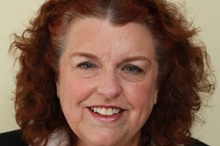 Carol Fennelly is being honored as a Champion of Change for her dedication to the well-being of children of incarcerated parents.
Carol Fennelly is being honored as a Champion of Change for her dedication to the well-being of children of incarcerated parents.Hope House was created in 1998 when the closing of the District of Columbia’s Lorton Correctional Center scattered thousands of DC inmates across the country to federal prisons. As a January 21, 2013, Washington Post article stated, "In a city where three out of four African American men will serve time in prison, two-thirds of its inmates are housed in 100 different federal Bureau of Prisons institutions from Pennsylvania to California." Inherent in that alarming statistic is the fact that thousands of DC children have one or more parent in prison. With many families living in or near poverty, visits and even long-distance phone calls are nearly impossible. This splintering of families causes damage on all sides. Frequently children feel abandoned, unloved, ashamed, and burdened with keeping the secret of their dad's whereabouts. Over time, the negative impact on their sense of self keeps many children from developing a positive outlook and taking positive action for their own futures. Such children are far less likely to succeed in school and more likely to succumb to substance abuse, gangs, and delinquency.
Research shows that bringing parents and their families together leads to many positive outcomes. Children who regularly visit with incarcerated parents show improved emotional adjustment, experience greater school achievement, and exhibit fewer risky behaviors than those who do not. Inmates who participate in family visitation programs have much lower rates of parole violation and recidivism after release than do non-participants.
Our mission is to help children stay connected to their fathers in prison. Our goals are to (a) strengthen families by improving the bonds between children and their fathers imprisoned far from home; (b) reduce the isolation, stigma, shame and risk these families experience when fathers are imprisoned; and (c) raise public awareness about this most at-risk population.
We currently operate in 11 federal prisons in Maryland, Virginia, North Carolina, the District of Columbia, and West Virginia. In the past three years we added two Maryland state prisons, as well. In our 15-year history, we have served more than 1,000 families; made more than 19,000 book recordings; provided summer camp for nearly 900 children and fathers; and conducted about 2,600 teleconferences. Our programs include:
-- Father-to-Child Reading Program: We use reading to build relationships between children and fathers, and we use their desire for a relationship to motivate them to continue reading together. We visit prisons regularly to make recordings of fathers reading the children's books we provide. We then mail the recordings and books home to the children. Research shows that reading to children improves language skills and interest in books.
-- Father-to-Child Teleconference Program: Children come to Hope House to visit with incarcerated fathers through a live teleconference. They typically read together, do homework, and catch up on the moments they are missing.
-- Father-to-Child Summer Camps: Until we helped two groups replicate it, this was the nation's only summer camp for fathers in prison. In each camp, 15-20 children spend 5 hours behind bars, for five days, with their fathers. Families work on art projects, compete as teams in games, dance and drum, journal, and have lunch together. Children and fathers build a more positive vision of their own futures, as dads encourage kids to avoid the paths that they themselves have taken. They get rare moments to act as a family when dads pass on bits of family history or advice, listening to and encouraging their children's dreams for the future. Children spend the evenings at a traditional camp with other recreational activities. They leave camp feeling cherished and supported, better equipped to face the world because they are confident in their father's love. Three years ago we expanded from two camps to three by adding a Maryland "supermax" facility where most serve life sentences. Our immediate challenge was organizing the leaders of competing gangs into a cooperative group; they agreed to suspend gang activity for the sake of a successful camp for their children. Last year a nearby prison joined this camp. For 12 years ours was the only such program in the country. Last year we mentored CA and NH groups to start camps.
-- Peer Support Groups address the isolation and social stigma experienced by children left behind when the father is imprisoned. Children's groups meet for outings, sleepovers, discussion groups, community service projects, and parties.
-- Outreach and Advocacy includes public productions to emphasize the difficulties faced by the children, conference presentations for policy-makers, publication of three books of poetry by our children and their fathers, and media outreach.
Carol Fennelly is the Executive Director of Hope House.
Learn more about ServiceRelationships, Connections and a Legacy to Live For
Posted by on June 18, 2013 at 11:57 AM EST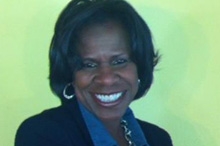 Carol F. Burton is being honored as a Champion of Change for her dedication to the well-being of children of incarcerated parents.
Carol F. Burton is being honored as a Champion of Change for her dedication to the well-being of children of incarcerated parents.When I was a young child my mother would say two things to me over and over, "Your dark skin is beautiful and yes, you can do anything that you set your mind to do." Her comments were in response to my questions about why I was so much darker than her and my older siblings and my insistence that one day I would sing at the White House just like Mahalia Jackson. My mother never completed high school, my father had a third grade education, and they both understood the essence of human development and resilience. The love and reassurance that my parents and siblings surrounded me with during those early years of my life has encouraged me to see possibilities everywhere, to create and realize visions, inspire others to lead and to connect with people across disciplines, geographic locations and self-interest.
After completing my Masters in Social Work at Grand Valley State University, I was ready to change the world and landed in Flint, Michigan. In 1989, I was hired as the Project Director for a demonstration pilot project. At the end of the interview, I was told that, "I am hiring you because people say that you can get things done and we need to get the project off the ground and running smoothly." My instructions were clear and I will be forever grateful for the opportunity to serve as Director and later as Co-Principal Investigator with Project S.E.E.K. (Services to Enable and Empower Kids) in Genesse County, Michigan. This twelve year longitudinal study and pilot for children of incarcerated parents changed my life. My role there was to supervise the implementation of the service component and revise the delivery based on feedback from the youth, caregivers and incarcerated parents along with developing countywide collaborations that would support the families, children and the parent returning from prison. It became clear that I had a strong ability to form relationships and build collaborations.
Learn more about ServiceA Journey for Change
Posted by on June 18, 2013 at 11:46 AM EST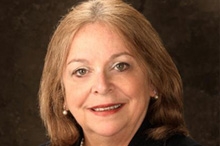 Ann Adalist-Estrin is being honored as a Champion of Change for her dedication to the well-being of children of incarcerated parents.
Ann Adalist-Estrin is being honored as a Champion of Change for her dedication to the well-being of children of incarcerated parents.1979 was designated the International Year of the Child by the United Nations and I was part of a local group of Early Childhood Educators in Philadelphia that chose Children with Incarcerated Parents as a focus for IYC service activities. We discovered then, that there was no agency or system in place for this population of children locally or nationally. There were few programs across the country to look to as models and scant research to guide us. Thus began my 34 year journey blending my training as a child and family therapist with my career as a trainer to focus on changing that landscape. The program that was born from those grass roots efforts in 1979 was a comprehensive visiting/parenting/family counseling program that I directed at the Bucks County Correctional Facility in Pennsylvania for 5 years. My work there led to an affiliation with the Family and Corrections Network and to connections to others who were beginning to be concerned about children and families impacted by the Criminal Justice System.
I am so very proud to be named a White House Champion of Change and to experience this honor in the company of the other amazing Champions, all of them have been a part of my journey and together we have formed a foundation of advocacy that has raised public awareness and improved services for children of the incarcerated and their families.
Many things changed in 2006, when the Federal Resource Center on Children of Prisoners, originally funded by a grant from the National Institute of Corrections and located at the Child Welfare League of America, merged with the Family and Corrections Network to create the National Resource Center on Children and Families of the Incarcerated. As Acting Director of the Federal Resource Center and then as Director of NRCCFI, I had the privilege of engaging with agencies and organizations in 49 of our 50 states, assisting them with the creation of programs policies and practices.
Along the way, my conversations with thousands of children, caregivers, parents and agency staff across this nation, confirmed and supported my belief that children of the incarcerated are, first and foremost just children. They go to school, get pediatric checkups and sometimes see therapists. Those that work in these systems are typically eager to learn more about the issues and hear about strategies to help them to help the children. I have been working with the Seedling Foundation and Austin Independent School District in Texas to implement policies and practices that support children of incarcerated parents and their families; through the Healthy Steps for Young Children Program at Boston University School of Medicine we train pediatricians to look at family stressors including parental incarceration and to provide resources to parents that will aid in coping and with Connecticut’s state wide CIP initiative, training for Mental Health Providers is specifically geared to addressing the trauma associated with parental incarceration.
Some children of the incarcerated are in the Child Welfare System and my most extensive project this last year has been implementing state wide training for child welfare workers in New Jersey, working with the New Jersey Child Welfare Training Partnership to create the curriculum and implement trainings. I have learned so much from the hundreds of workers from the NJ Department of Child Protection and Permanency that have attended these sessions. The intersection of Child Welfare and Corrections is complicated and challenging and their commitment and creativity continues to inspire me and to inform the development of future projects.
These are children that also have direct and indirect contact with the criminal justice system; a system that is often ill prepared for responding to the needs of children. My presentations at a series of Federal Probation Office Regional Training Conferences led to the creation of a Train the Trainer Session for the Pennsylvania Department of Probation and Parole that is used for training new officers on issues related to children of incarcerated and newly released parents.
These projects are all changing the conversations about children of the incarcerated within the systems that serve them. Recently, I developed a new course for Rutgers University in Camden New Jersey-“Topics in Criminal Justice: Children and Families of the Incarcerated.” Several students have come to me to let me know that they had incarcerated parents and thanked me for making it easier for them to let go of the secret. So much has changed and still there is much to do to create a world where children of incarcerated parents can all feel safe to talk about their parents and their feelings without fear of judgment.
Once, during a question and answer session after a presentation in the early years of my work, someone asked me “where do you want this all to lead?” And I said, “To the White House!” And they laughed. But 30 years later, it did and I am truly grateful to all who were a part of the journey that led me here.
Ann Adalist-Estrin is Director of the National Resource Center on Children and Families of the Incarcerated in Philadelphia.
Learn more about Service
- &lsaquo previous
- …
- 58
- 59
- 60
- 61
- 62
- 63
- 64
- 65
- 66
- …
- next &rsaquo
White House Blogs
- The White House Blog
- Middle Class Task Force
- Council of Economic Advisers
- Council on Environmental Quality
- Council on Women and Girls
- Office of Intergovernmental Affairs
- Office of Management and Budget
- Office of Public Engagement
- Office of Science & Tech Policy
- Office of Urban Affairs
- Open Government
- Faith and Neighborhood Partnerships
- Social Innovation and Civic Participation
- US Trade Representative
- Office National Drug Control Policy
categories
- AIDS Policy
- Alaska
- Blueprint for an America Built to Last
- Budget
- Civil Rights
- Defense
- Disabilities
- Economy
- Education
- Energy and Environment
- Equal Pay
- Ethics
- Faith Based
- Fiscal Responsibility
- Foreign Policy
- Grab Bag
- Health Care
- Homeland Security
- Immigration
- Innovation Fellows
- Inside the White House
- Middle Class Security
- Open Government
- Poverty
- Rural
- Seniors and Social Security
- Service
- Social Innovation
- State of the Union
- Taxes
- Technology
- Urban Policy
- Veterans
- Violence Prevention
- White House Internships
- Women
- Working Families
- Additional Issues

